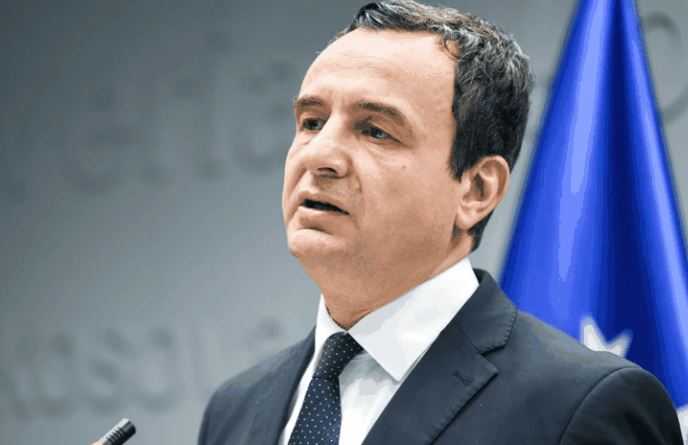
Nga: Fadil Maloku, sociolog nga Prishtina
- Karizma politike, në teoritë sociologjike e sidomos ato politike e njohur si fuqi apo si një lloj “opiumi” mobilizues për masat e gjera, përdoret zakonisht nga liderët që futen (jo rastësisht!)në politikë me qëllime (në pamje të parë, padyshim fisnike!) të ndryshimit të kurseve të karizmatike e e fillojnë me shumë entuziazëm e ambicie të shëndosha, por. Që më vonë lehtësisht e devijojnë sapo ta “pushtojnë” hapësirën e pushtetit. Ani pse ky lloj politikani synon dhe ka ambicie fillestare sanimin dhe përmirësimin e deformiteteve të shkaktuara në sistemin socio ekonomik nga elitat e karizmat e mëhershme politike, ai në vazhdimësi si imperativ e ka edhe ngritjen e vetë personale. Në fakt karizma e tillë kur e heton dhe e kupton se “pesha e tij specifike”, po ngritet në mënyrë të meteorite kundruall idealeve që kanë të bëjnë me synime e ambicie identitare e shtetërore (si është p.sh. rasti ynë) të vonuara e të parealizuara në kohëra të duhura historike, shndërrohet në idhull. Të njëjtit, “karrierën” brofshme dhe nivel të lakmueshëm social në raport me kundërshtarët e vjetër të skenës së caktuar politike, nuk ngurrojnë që gjatë këtij rrugëtimi të dizajnojnë si perceptimin ashtu edhe rregullat e reja të lojës së animimit të publikut. Ambiciet dhe synimet për ta ndryshuar ekuilibrin e caktuar sociopolitik, tek ky lloj lidershipi të shumtën e rasteve janë aq obsesive e fanatike sa që për një vend të privuar nga mekanizmat e kontrollit, masat amorfe qytetare të qytetarisë nuk ngurron t’i fut edhe në konfrontime e polarizime të gjera e të paparashikuara si me shtresat divergjente sociale ashtu edhe me kombet e shtetet që në “dioptrinë” e tij politike “kualifikohen” si armiqësore e kërcënuese. Ky lloj makiavelizmi, historikisht na ka dëshmuar se autokratizmi është petku që ata e mëveshin pa asnjë hezitim.
- Në anën tjetër, përpjekja e tyre për të alarmuar për këto “rreziqe e kërcënime” në horizont, jo gjithherë perceptohet si mundësi e zhbërjes dhe anulimit të arriturave që i kanë arritur të tjerët. Kjo lloj “konkurrence” (në fakt jo lojale) midis të benefiteve që i ka arritur gjenerata e mëhershme e elitës së caktuar politike, pothuajse gjithnjë projektohet si sfidë po edhe si pengesë serioze për rritjen e karizmës së tyre. Ku “lojtarët”, apo udhëheqja e zakonshme me tipin e ri karizmatik synon t’i absorboj ca karakteristikat të thjeshta ontologjike, që e “ushqejnë”, brumosin dhe vulosin natyrën dhe prirjen e tij të lidershipit. Thënë më ndryshe; ideja dhe qëllimi final i këtij tipi lidershipi bëhen; rrjetëzimi i veshur me petkun e sundimit e ligjit e sidomos; krijimi i sistemit të ri hierarkik, ku fuqizohen dhe favorizohen shumë më shumë besnikëria ndaj tij se sa zbatimi i rregullave e normave të ligjeve. Në sistemet neoliberale demokratike, sot për sot ekzistojnë dy kritere apo parametra sociologjik që deri diku mund ta identifikojnë shkallën apo nivelin e karizmës politike të një politikani modern. Ato janë; natyra e sundimit dhe qëllimet e sundimit. Tani, nëse këto dy kritere i s’postojmë në rrethanat dhe aktualitetin tonë socio politik, lehtësisht mund të vlerësojmë edhe angazhimin, kontributin, po edhe natyrën e sundimit (qeverisjes) bashkë me qëllimet e sundimit. Sipas kriterit të parë lideri shikuar me dioptrinë sociologjike nëse konceptin e karizmës politike e s’poston në ambientin tonë socio politik, ku karizma e aktuale politike e KM të Kosovës Albin Kurtit, këndvështrohet e sidomos interpretohet nga prizma se ai synon; t’i transformoj vlerat dhe normat e sjelljes së deritanishme morale tradicionale e racionale politike (në veçanti), e ato ekonomike (që tani për tani mbeten vetëm “punëSizifi”), në mënyrë që të njëjtat t’i shndërroj në një alternim ndryshe të veprimit, pra në një premisë krejtësisht të re të gjitha aktet, veprimet qëndrimet e sidomos vendimet e mëhershme politike (lexo; Marrëveshjet e dëmshme për Kosovën si Demarkacioni e Asociacioni), atëherë, ai padyshim duhet të konfirmohet, dëshmohet po edhe konsiderohet vërtetë një karizëm me vlerë të çmueshme e avokat i interesave kombëtare e shtetërore shqiptare. Mirëpo, nëse në këtë rrugëtim që për kundërshtarët e tij po cilësohet e identifikohet si; “mashtrues, tinëzar, marksist”, “mashtrues ordiner”, “si njeri që po na armiqëson me aleatët dhe miqtë tanë”, vërtetohet dhe dëshmohet si person e si subjekt politik që nuk realizon premtimet e dhëna, atëherë i bie që i gjithë narracioni i cilësimit, trajtimit e identifikimit si karizmë e dalluar politike “mbetet vetëm një iluzion e”punë Sizifi” që fare nuk ka pasur për qëllim përmirësimin dhe ndryshimin e gjendjes…por, vetëm promovimin e protagonizmit dhe egos së tij personale! Ngase, pushteti është ai karari që mund ta verifikoj, po edhe demantoj hipotezën e ngritur rreth karizmes së politikanit të caktuar. Në ndërkohë, për ta pasur më të saktë diagnostikimin na duhet ta bëjmë dallimin midis lidershipit të zakonshëm juridiko-racional dhe lidershipit të jashtëzakonshëm karizmatik.
- Ajo çka i dallon këto dy tipe, janë padyshim synimet dhe ambiciet për transformime rrënjësore të rendit institucional (karizma politike) dhe tendenca e improvizimit (lexo mashtrimit) në kuptimin e mos mbajtjes së premtimeve elektorale. Sot, sociologjikisht mund të dëshmohet nga përvojat e partive populiste (si ajo e S. Berluskonit, e Marin Lepen, ajo e V. Orbanit, e Erdoganit, etj) se karizmat politike në rast se nuk përmbushin premtimet e dhëna elektorale, shumë lehtë s’postohen në statusin e lidershipit mesatar e nën mesatar. Anasjelltas, ata ngrihen nga statusi i zakonshëm në statusin karizmatik pasi arrijnë të përmbushin premtimet (që në rastin e Kosovës ende janë të karakterit dhe interesit nacional) e dhëna, duke fituar kështu edhe amnistinë morale e politike të ithtarëve te vetë. Ashtu që (pa)përgjegjësia për të (pa)bëmat në rrafshin politik, ekonomik e mund të ushtrohet edhe në sferat tjera, atij i qëndron mbi kokë si “shpata e Demokleut”. Në kontekstin tonë, kjo “shpatë” identifikohet edhe si faktori ndërkombëtar, miqtë dhe aleatët tanë që i kemi dhe hisedarë sidomos temën e shtrirjes së sovranitetit në territorin e Kosovës. Megjithatë, në rrethanat e lëkundjes së themeleve të rendit të vjetër të globalizimit, ku patjetër mëtohet reduktimi i rolit të shtetit (që elitat tona e kane keqkuptuar), ekzistojnë gjasat reale që roli i karizmave të reja politike (Orban p.sh.)edhe të forcohet shkaku i kundërshtimit që ata i bëjnë qendrave globale vendimmarrëse. Duket që lufta në Ukrainë dhe ajo në Gaza, po edhe krizat potenciale si Bosnja dhe Kosova, do e përshpejtojnë rikthimin e rolit të karizmave politike që insistojnë në fuqizimin e rolit të shtetit në agjendat e reja gjeopolitike…
Duket që lufta në Ukrainë dhe ajo në Gaza, po edhe krizat potenciale si Bosnja dhe Kosova, do e përshpejtojnë rikthimin e rolit të karizmave politike që insistojnë në fuqizimin e rolit të shtetit në agjendat e reja gjeopolitike…
Albin Kurti, is he a charismatic leader or an ordinary fraud?
- Political charisma, in sociological theories and especially political ones known as power or as a kind of mobilizing “opium” for the masses, is usually used by leaders who enter (not by chance!) politics with goals (at first glance, undoubtedly noble!) of changing the courses of charismatic and disease with much enthusiasm and sound ambition, but. That later they understand and deviate as soon as they “occupy” the space of power. Even though this type of politician aims and has initial ambitions to correct and improve their deformation in the social economic system by the elites and former political charismas, he continues as an imperative and also to raise his personal self. In fact, such charisma when you investigate and understand that “its exact weight”, is rising like a meteorite against the ideals that are related to the goals and identity ambition of the state (such as our case) delayed. and unrealized at the right historical time, turns into an idol. The same, professional “careers” and an enviable social level in relation to many old ones of the political scene, do not hesitate to design, as they perceive, the new rules of the game of public animation. Ambitions and intentions to change the certain sociopolitical balance, in this type of leadership, in most cases, are so obsessive and fanatical that for a country deprived of control mechanisms, the amorphous citizen masses of the citizenry do not hesitate to bring them into confrontations and wide and unforeseen polarizations both with divergent social layers and with nations and states that in his political “diopter” “qualify” as hostile and threatening. This kind of Machiavellianism has historically proven to us that autocracy is the cloak they wear without any hesitation.
- On the other hand, their attempt to warn about these “dangers and threats” on the horizon, is not always perceived as the possibility of undoing and canceling the achievements that others have achieved. This type of “competition” (actually not loyal) between the benefits achieved by the previous generation of certain political elite, is almost always projected as a challenge as well as a serious obstacle to the growth of their charisma. Where the “players”, or the usual leadership with the new charismatic type aims to absorb some simple ontological characteristics, which “nourish” him, knead and seal his nature and leadership tendency. In other words; the idea and the final goal of this type of leadership are done; networking dressed in the guise of the rule of law and especially; the creation of the new hierarchical system, where loyalty to it is strengthened and favored much more than the application of rules and norms of laws. In neoliberal democratic systems, today there are two sociological criteria or parameters that can to some extent identify the degree or level of political charisma of a modern politician. They are; the nature of rule and the purposes of rule. Now, if we do not post these two criteria in our socio-political circumstances and actuality, we can easily evaluate the commitment, the contribution, and also the nature of the rule (governance) together with the goals of the rule. According to the first criterion, the leader viewed with a sociological dioptre if he does not post the concept of political charisma in our socio-political environment, where the current political charisma of Kosovo CM Albin Kurti, is viewed and especially interpreted from the prism that he aims; to transform the values and norms of traditional moral and rational political behavior (in particular), and economic ones (which for now remain only “Sisyphus’s work”), in order to transform them into a different alternation of action, i.e. in a completely new premise, all acts, actions, positions, and especially previous political decisions (read; Harmful Agreements for Kosovo such as Demarcation and Association), then, it must be confirmed, proven and even considered a true invaluable charisma and advocate of Albanian national and state interests. However, if in this journey that for his opponents is being described and identified as; “fraudster, insidious, Marxist”, “ordinary fraudster”, “as a person who is making us hostile to our allies and friends”, is proven and proven as a person and as a political subject who does not fulfill the promises given, then the whole narrative falls to him of defining, treating and identifying as distinguished political charisma “remains only an illusion of a “Sisyphus work” that was not intended to improve and change the situation at all… but only to promote his personal protagonism and ego! Because power is the thing that I can verify, I also deny the hypothesis raised about the charisma of a certain politician. In the meantime, in order to have a more accurate diagnosis, we need to distinguish between ordinary juridical-rational leadership and extraordinary charismatic leadership.
- What distinguishes these two types are undoubtedly the goals and ambitions for radical transformations of the institutional order (political charisma) and the tendency to improvise (read fraud) in the sense of not keeping electoral promises. Today, it can be sociologically proven from the experiences of populist parties (such as that of S. Berlusconi, that of Marine Lepen, that of V. Orbani, that of Erdogan, etc.) that political charismas in the event that they do not fulfill the electoral promises given, very easily are posted in average and below average leadership status. Conversely, they rise from the ordinary status to the charismatic status after they manage to fulfill the promises (which in the case of Kosovo are still of national character and interest) given, thus gaining the moral and political amnesty of their followers. So that the (non)responsibility for the (non)deeds in the political, economic plane can also be exercised in other spheres, it rests on his head like the “sword of Damocles”. In our context, this “sword” is also identified as the international factor, our friends and allies that we have and shareholders, especially the subject of the extension of sovereignty in the territory of Kosovo. However, in the circumstances of the shaking of the foundations of the old order of globalization, where the reduction of the role of the state (which our elites have misunderstood) is definitely felt, there are real possibilities that the role of new political charismas (Orban, for example) to strengthen the cause of their opposition to global decision-making centers. It seems that the war in Ukraine and Gaza, as well as potential crises like Bosnia and Kosovo, will accelerate the return of the role of political charismas that insist on strengthening the role of the state in the new geopolitical agendas…




Albini eshte nje sharlatan qe Kosoven cdo dite e me shume po e dergon drejt shkaterrimit.